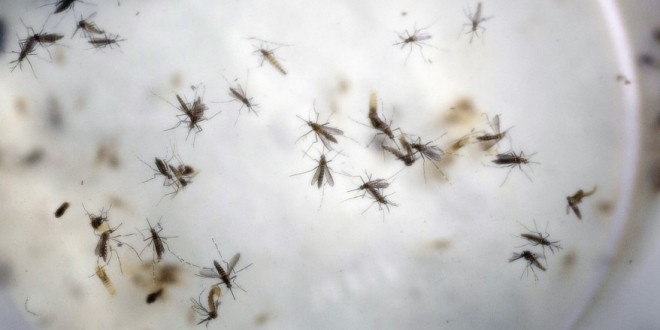Ontario’s chief medical officer of health has confirmed the province’s first case of the Zika virus.
Dr. David Williams said Friday that the patient is a person who had recently travelled to Columbia, but provided no further details.
“Ensuring that Ontarians are fully informed about emerging and infectious diseases such as Zika virus is a priority,” Ontario’s Chief Medical Officer of Health Dr. David Williams said in a statement.
“Together with the Public Health Agency of Canada, Public Health Ontario, the U.S. Centers for Disease Control and Prevention, the World Health Organization and other national and international partners, our ministry has been monitoring and assessing Zika virus.”
The Zika virus — transmitted by the Aedes aegypti mosquito — has spread to at least 32 countries. The World Health Organization estimates close to four-million people across the Americas will be infected with the virus in the next year.
There is no vaccine or medication that protects against Zika virus infection.
Despite the first confirmed case, Williams said the risk to Ontarians remains very low, as the mosquitoes known to transmit the virus are not established in Canada and aren’t well-suited to our frigid climate.
People travelling to regions affected with Zika virus should protect themselves by taking protective measures to prevent mosquito bites and consult their doctor before traveling, Williams said.
Pregnant women and those trying to conceive should talk to their healthcare provider to assess whether to postpone travel to areas where the Zika virus is circulating in the Americas.
Signs and Symptoms
The incubation period (the time from exposure to symptoms) of Zika virus disease is not clear, but is likely to be a few days. The symptoms are similar to other arbovirus infections such as dengue, and include fever, skin rashes, conjunctivitis, muscle and joint pain, malaise, and headache. These symptoms are usually mild and last for 2-7 days.
During large outbreaks in French Polynesia and Brazil in 2013 and 2015 respectively, national health authorities reported potential neurological and auto-immune complications of Zika virus disease. Recently in Brazil, local health authorities have observed an increase in Zika virus infections in the general public as well as an increase in babies born with microcephaly in northeast Brazil. Agencies investigating the Zika outbreaks are finding an increasing body of evidence about the link between Zika virus and microcephaly. However, more investigation is needed before we understand the relationship between microcephaly in babies and the Zika virus. Other potential causes are also being investigated.
Transmission
Zika virus is transmitted to people through the bite of an infected mosquito from the Aedes genus, mainly Aedes aegypti in tropical regions. This is the same mosquito that transmits dengue, chikungunya and yellow fever.
Zika virus disease outbreaks were reported for the first time from the Pacific in 2007 and 2013 (Yap and French Polynesia, respectively), and in 2015 from the Americas (Brazil and Colombia) and Africa (Cape Verde). In addition, more than 13 countries in the Americas have reported sporadic Zika virus infections indicating rapid geographic expansion of Zika virus.
Diagnosis
Zika virus is diagnosed through PCR (polymerase chain reaction) and virus isolation from blood samples. Diagnosis by serology can be difficult as the virus can cross-react with other flaviviruses such as dengue, West Nile and yellow fever.
Prevention
Mosquitoes and their breeding sites pose a significant risk factor for Zika virus infection. Prevention and control relies on reducing mosquitoes through source reduction (removal and modification of breeding sites) and reducing contact between mosquitoes and people.
This can be done by using insect repellent; wearing clothes (preferably light-coloured) that cover as much of the body as possible; using physical barriers such as screens, closed doors and windows; and sleeping under mosquito nets. It is also important to empty, clean or cover containers that can hold water such as buckets, flower pots or tyres, so that places where mosquitoes can breed are removed.
Special attention and help should be given to those who may not be able to protect themselves adequately, such as young children, the sick or elderly.
During outbreaks, health authorities may advise that spraying of insecticides be carried out. Insecticides recommended by the WHO Pesticide Evaluation Scheme may also be used as larvicides to treat relatively large water containers.
Travellers should take the basic precautions described above to protect themselves from mosquito bites.
Treatment
Zika virus disease is usually relatively mild and requires no specific treatment. People sick with Zika virus should get plenty of rest, drink enough fluids, and treat pain and fever with common medicines. If symptoms worsen, they should seek medical care and advice. There is currently no vaccine available.
Agencies/Canadajournal
 Canada Journal – News of the World Articles and videos to bring you the biggest Canadian news stories from across the country every day
Canada Journal – News of the World Articles and videos to bring you the biggest Canadian news stories from across the country every day




its COLOMBIA